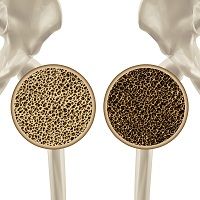Article
An Injection for Injectables: MIDOs Project Receives Grant for Bone-Strengthening Microspheres
Author(s):
The National Institute for Health Research gave a sizable grant to the MIDOs project, which seeks to strengthen bones and prevent fractures via minimally-invasive stem cell injectables.

The MIDOs project, which stands for “Minimally Invasive Delivery of Osteospheres,” is intent on alleviating fracture risks and associated medical costs. Citing nearly a quarter-million annual osteoporosis-related fractures in the UK alone, as well as the financial and social costs associated with those numbers, the group points out a clear need for a preventative, rather than entirely reactive, approach to osteoporosis.
The project, primarily headed by researchers from the University of Nottingham, received a boost last week when the National Institute for Health Research (NIHR) presented it with an Intention for Innovation (i4i) Challenge Award, providing a £1.2 million injection into its efforts.
The goal of the MIDOs project is to develop porous calcium phosphate microspheres to act as vessels for stem cells. After identifying areas of low bone mineral density, the researchers hope to be able to inject patients with their own stem cells, housed in these manufactured microspheres, in order to repair and strengthen the bones, thus preventing thousands of fractures.
NIHR’s grant will go both towards the development of these spheres as well as towards a Patient and Public Involvement study to gauge perception of this proposed technology. The i4i Award, according to the NIHR, seeks to foster the development of “a disruptive technology with the potential to offer improved outcomes for NHS patients.”





